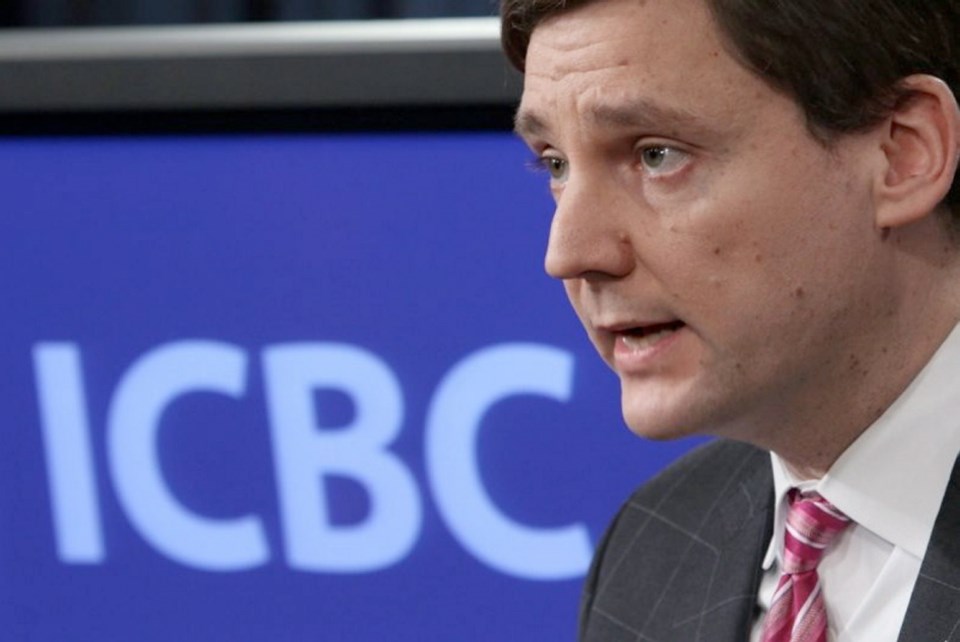Faced with mounting losses and a record number of crashes, ICBC is cutting its advertising budget in half and shifting the money to traffic enforcement, Attorney General David Eby announced Tuesday
Police agencies will get an extra $2.4 million next fiscal year to focus on traffic safety, increasing ICBC’s spending on enforcement to nearly $25 million a year.
“The concern I have is that we’re advertising to all British Columbians and that there is a subset of British Columbians that don’t seem to be getting the message about responsible driving, not using their cellphones, [not] speeding, not running red lights,” Eby said in an interview.
“And the best advertising message, we figure, is one delivered by a police officer at the side of the road to these individuals.
“I think it’s continually frustrating to good drivers that they hear all these safe-driving messages over and over, and they’re already driving safely. I think for some drivers, we need a more direct approach.”
Eby, the minister responsible for ICBC, said B.C. recorded an all-time high of 350,000 crashes last year or about 960 a day.
Police will be able to focus the new resources on certain problems or locations in their jurisdictions.
“We are very reliant on local police forces knowing where the accidents are taking place and to dedicate enforcement resources to those areas,” Eby said. “It might be distracted driving, it might be a particular road or intersection where people are speeding.
“That’s the benefit of this program; it takes advantage of the local knowledge of the police department.”
Chris Foord, vice-chairman of the Capital Regional District Traffic Safety Commission, applauded the move.
“Anything that has more funds going to enforcement is a step in the right direction,” he said. “More enforcement will produce fewer crashes.”
Foord urged the provincial government to also take a hard look at the commission’s proposal for “point-to-point” speed cameras on the Malahat to reduce crashes. The cameras calculate speed by measuring the time it takes a vehicle to get from one location to another.
“I would certainly hope they move forward on that,” he said. “Even for police enforcement on the Malahat, it would allow the officers to focus on other things than just speed [such as] aggressive driving, tailgating, just dangerous manoeuvres.”
The Opposition Liberals were unavailable to comment.
The province said ICBC will keep about $2.4 million in its advertising budget to promote road-safety campaigns and tell British Columbians about upcoming changes to auto insurance.
“ICBC has an important mandate around educating the public in relation to automotive safety; it’s part of their statutory mandate,” Eby said. “But, my interest is in trying something different to see if we can get more impact in changing behaviours of some drivers.”
The decision to shift advertising money to enforcement is the latest in a series of moves by government to try to curb spiralling losses at the Crown corporation.
ICBC announced last week that it posted a net loss of $582 million in the first six months of the fiscal year and now projects a loss of $890 million in 2018-19.
The government has attributed the ongoing problems to high bodily injury costs and the fact that claims are taking longer to resolve.
Among other things, government has taken steps to cap payouts for minor injuries, expand the use of red-light cameras, and make higher-risk drivers pay more.
Eby said government expects to begin reaping savings when many of the reforms take effect on April 1, 2019.
“That’s when people will really start to see, I hope, a significant financial turnaround at ICBC,” he said.



